Descendants of banished Caribbeans visit Portchester Castle to find out about 'revolutionary heroes'
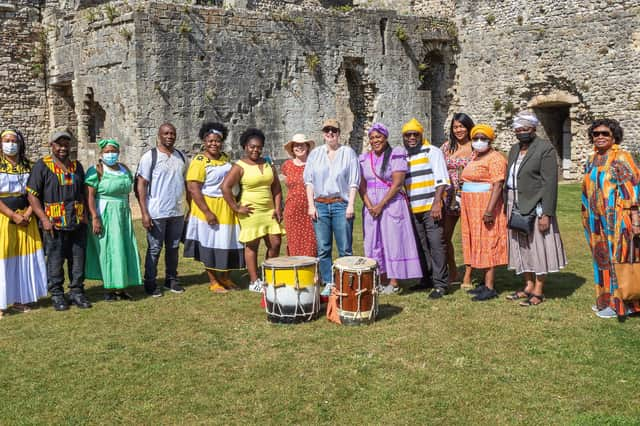

A delegation of more than a dozen Garifuna People of Central America in colourful dress, visited the historic fortification on a critical fact-finding mission about a ‘lost piece’ of their history.
Garifuna, also known as Garinagu, are the descendants of an Afro-indigenous population from the island of St Vincent who were exiled by the British in 1796 following years of skirmishes and rebellions. Some were eventually locked away in Portchester Castle as prisoners of war.
Advertisement
Hide AdAdvertisement
Hide AdSince being exiled, descendants of the Garinagu have set up in small pockets across the globe, in countries like Honduras, Belize, Guatemala, America and England.
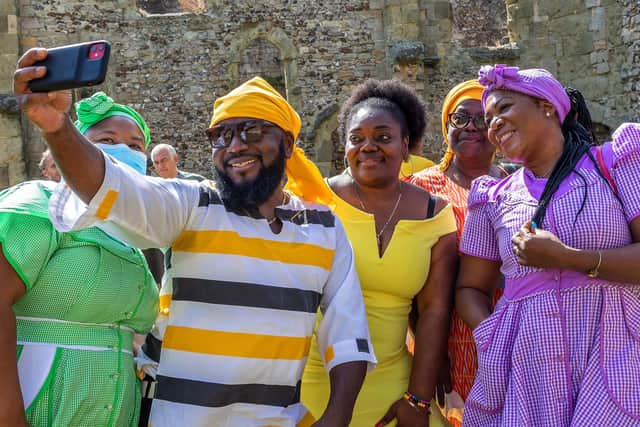

But the displacement by the British has left vast gaps in the history of the Caribbean people – historic holes the Garinagu are now desperate to fill.
Andoni Castillo, 45, of London, was part of the delegation to visit Portchester. He said: ‘It is very important to us to tread in the history of our ancestors, when they came to Portchester as prisoners of war.
‘Our ancestors were part of a resistance and revolution, struggling to preserve their culture and language.
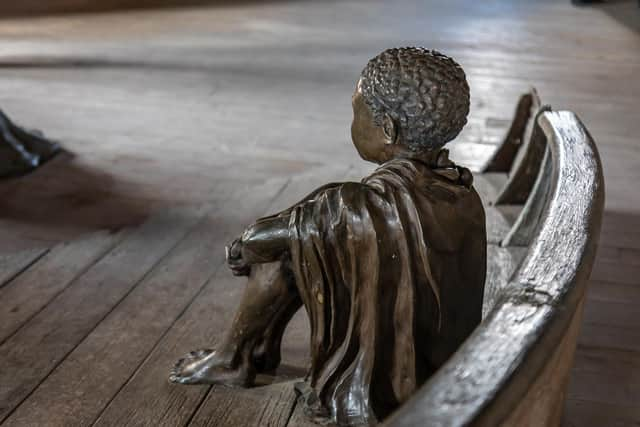

Advertisement
Hide AdAdvertisement
Hide Ad‘There were 416 Garifuna fighters held at Portchester Castle for many, many years. Some died during the journey from St Vincent to Portchester and Portsmouth Harbour.
‘We want to recognise the history, resistance and struggle of our ancestors but also to dignify the Garifuna people.’
A new exhibition at Portchester Castle chronicles the lives of some 2,500 prisoners of war from the Caribbean.
Most were from St Lucia, but a smaller contingent of Garifuna from St Vincent were also among those interned in the castle, who would have slept in hammocks inside the keep.
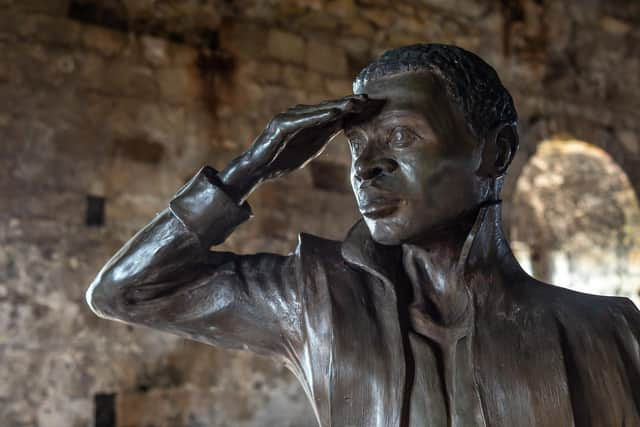

Advertisement
Hide AdAdvertisement
Hide AdThe exhibition was spearheaded by researchers from the University of Warwick, who were on hand to meet the delegation in Portchester – who had travelled from America, France, Honduras and Guatemala.
Professor Katherine Astbury, professor of French studies at the university, said: ‘This exhibition has really excited the Garifuna people across the globe. Because of the way in which they were forced to leave their homeland and how they have been wandering ever since, this represents a really important last moment of Garifuna history on the island of St Vincent.
‘The Garifuna have worked so hard to preserve their history, culture and language, so the fact that we have the names of some of the prisoners here allows them to reconnect with these heroes of their past and honour them.’
Mirtha Colon, president of the Central American Black Organization, flew from New York to visit Portchester Castle and hopes to bring future delegations to the area on cultural trips.
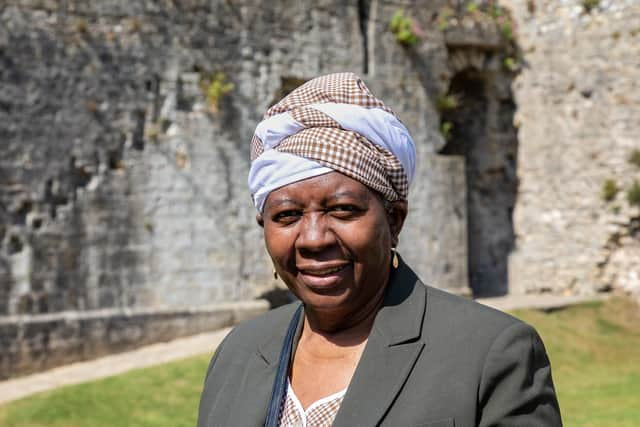

Advertisement
Hide AdAdvertisement
Hide AdShe said: ‘We have been missing a lot of pieces from our history. We only learned recently that some Garifuna People were brought here to Portchester Castle. We never knew this. Our history is now complete.’
A message from the Editor, Mark Waldron
You can subscribe here for unlimited access to our online coverage, including Pompey, with 70 per cent fewer adverts for less than 20p a day.
Comment Guidelines
National World encourages reader discussion on our stories. User feedback, insights and back-and-forth exchanges add a rich layer of context to reporting. Please review our Community Guidelines before commenting.
